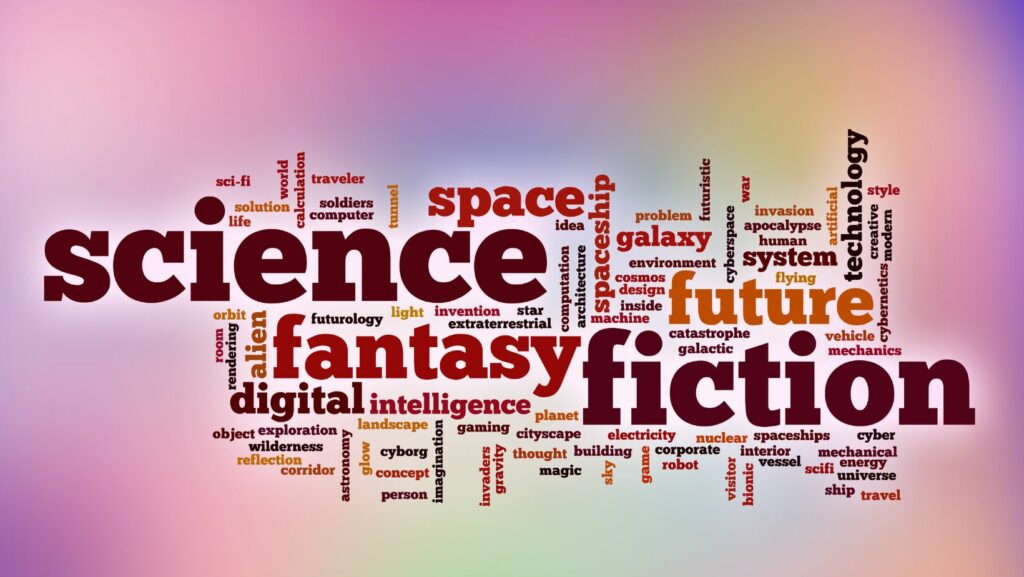Least Popular Book Genres
- Lesser-Known Genres: Many book genres like experimental fiction, historical biographies, and poetry remain underappreciated, yet they offer unique narratives that challenge traditional storytelling.
- Market Influence: Mainstream trends, such as the dominance of romance and thrillers, impact the visibility and marketing resources allocated to niche genres, hindering their popularity.
- Reader Preferences: Many readers prefer accessible and familiar themes, often avoiding genres that require deeper engagement, such as philosophical fiction and certain poetry styles.
- Accessibility Barriers: Niche genres may employ specialized language and complex concepts, making them less approachable for the average reader.
- Lack of Media Adaptations: Genres without adaptations in film or television often struggle to reach wider audiences, limiting their recognition in the literary landscape.
- Author Challenges: Writers in lesser-known genres may face difficulties with visibility and publication, but they can cultivate dedicated readerships and build strong connections through online engagement.
 In the vast world of literature, certain genres shine brightly while others linger in the shadows. While romance and thrillers dominate bestseller lists, some book genres struggle to capture readers’ hearts. Exploring these lesser-known genres reveals a treasure trove of unique stories and unconventional styles that often go unnoticed.
In the vast world of literature, certain genres shine brightly while others linger in the shadows. While romance and thrillers dominate bestseller lists, some book genres struggle to capture readers’ hearts. Exploring these lesser-known genres reveals a treasure trove of unique stories and unconventional styles that often go unnoticed.
From the quirky charm of experimental fiction to the niche appeal of historical biographies, these genres offer a fresh perspective for adventurous readers. Understanding why these genres are less popular can shed light on evolving reading preferences and the ever-changing landscape of the literary world. For those willing to venture off the beaten path, discovering these hidden gems can lead to unexpected delights.
Overview of Least Popular Book Genres
Several book genres attract less attention than mainstream categories. These lesser-known genres often feature distinctive narratives and styles that challenge conventional storytelling.
Characteristics of Least Popular Genres
- Experimental Fiction: This genre plays with narrative structure and language. Writers often focus on unconventional formats, which may deter mainstream readers.
- Historical Biographies: These works delve into specific historical figures, offering detailed accounts of their lives. While informative, they may lack mass appeal due to their specialized subjects.
- Poetry: Often seen as less accessible, poetry demands a deeper engagement with language and emotion. Its varied forms can confuse casual readers.
- Science Fiction Subgenres: Niche areas like space opera or cyberpunk attract dedicated fans but often eschew broader readership due to their complex themes and settings.
- Philosophical Fiction: Books that explore existential questions or philosophical dilemmas can alienate readers in search of straightforward plots.
- Market Trends: Book consumers often prefer genres that align with mainstream trends. Less marketability leads to limited promotion for hidden genres.
- Reader Preferences: Many readers gravitate toward genres with predictable story arcs and familiar themes rather than innovative or experimental forms.
- Cultural Bias: Certain genres receive less recognition within the literary community, further contributing to their marginalization.
- Accessibility: Niche genres may use specialized language or concepts, creating barriers for potential readers.
- Lack of Media Adaptations: Genres without adaptations in film or television struggle to gain wider audience recognition, limiting their reach.
Exploring these overlooked genres enhances readers’ literary experiences. Understanding the dynamics behind their lesser popularity illuminates the variety of narratives waiting to be discovered.
Reasons for Low Popularity
Various factors contribute to the low popularity of certain book genres. Understanding these reasons provides insight into the shifting landscape of literature and reader engagement.
Market Trends
Market trends heavily influence genre popularity. Publishers often prioritize mainstream genres such as romance and thrillers due to higher sales potential, leading to increased marketing and visibility. The preference for familiar themes results in limited resources allocated to niche genres. For instance, experimental fiction and historical biographies receive less attention, given their specialized nature. Additionally, media adaptations predominantly favor popular genres, further widening the gap between prominent and lesser-known categories.
Reader Preferences
Reader preferences play a significant role in shaping the literary marketplace. Many readers gravitate towards easily digestible content and engaging storylines found in popular genres. Consequently, experimental fiction, with its complex structures and themes, appears less appealing to the average reader. Similarly, poetry often requires deeper contemplation, making it less attractive for those seeking quick satisfaction. Trends reflect a shift towards accessibility and entertainment, pushing niche genres, like philosophical fiction and certain subgenres of science fiction, further into obscurity.
Examples of Least Popular Book Genres
Several book genres consistently struggle for recognition in readers’ preferences. These genres often offer distinct narratives and styles that diverge from mainstream attractions.
Literary Fiction
Literary fiction focuses on character development, thematic depth, and stylistic quality rather than plot-driven narratives. This genre often explores complex human experiences through introspective storytelling. While acclaimed by critics, its slow pacing and lack of conventional plot twists can deter many mainstream readers. Works by authors like James Baldwin and Virginia Woolf exemplify literary fiction’s richness, yet their readership remains limited compared to genre fiction.
Experimental Fiction
Experimental fiction breaks traditional narrative structures, often leading to unconventional storytelling methods. This genre embraces unique formats, fragmented timelines, and innovative language, inviting readers to engage in new ways. Despite its potential for generating fresh literary experiences, experimental fiction faces challenges in attracting larger audiences. Noteworthy examples, such as “House of Leaves” by Mark Z. Danielewski, showcase this genre’s creativity, but many readers find it difficult to navigate its complexities.
Certain Poetry Styles
Certain styles of poetry, such as free verse or avant-garde forms, tend to alienate readers seeking straightforward storytelling. Free verse often lacks rhythmic consistency and structured rhyme schemes, making it less accessible. Avant-garde poetry pushes boundaries by eschewing traditional forms in favor of experimental language and subject matter. Writers like E.E. Cummings and Gertrude Stein exemplify these styles, appealing to a niche audience while remaining overlooked by mainstream readers.
Impact of Popularity on Authors
Popularity significantly influences authors’ careers and opportunities. Authors often face challenges when writing in lesser-known genres. Many publishers prioritize popular genres for marketing and distribution. This practice limits visibility for authors of niche genres.
Authors in less popular genres experience difficulties in gaining readership. They often struggle to find publishers willing to invest in their works. Consequently, financial success remains elusive compared to authors in mainstream genres. This disparity can lead to frustration and a lack of motivation for authors pursuing unconventional narratives.
However, authors of niche genres can cultivate dedicated audiences. They build strong connections with readers seeking unique stories. These authors frequently harness online platforms and social media for promotion. Engaging directly with their audience allows them to carve out a space in the literary market.
Moreover, critical acclaim can provide motivation for authors. Some authors gain recognition through literary awards and reviews. This recognition can enhance credibility and attract interested readers, despite the genre’s overall popularity.
Ultimately, popularity shapes publishing dynamics, but it does not determine an author’s worth. Passionate storytelling can resonate deeply, regardless of genre status. Authors committed to their craft often find ways to engage with readers and survive in a market that favors mainstream trends.
A World of Unique Narratives and Unconventional Styles
Exploring the least popular book genres opens up a world of unique narratives and unconventional styles. Readers willing to venture beyond mainstream offerings often discover hidden gems that challenge their perspectives.
While these genres may struggle for recognition in a market dominated by popular trends, their value lies in the depth and creativity they offer. Authors dedicated to these niches can find their voices and cultivate loyal followings through innovative marketing strategies and community engagement.
Diving into experimental fiction or historical biographies can enrich the reading experience and inspire a deeper appreciation for diverse storytelling. Embracing these overlooked genres not only broadens literary horizons but also supports the authors who bravely share their unconventional tales.



